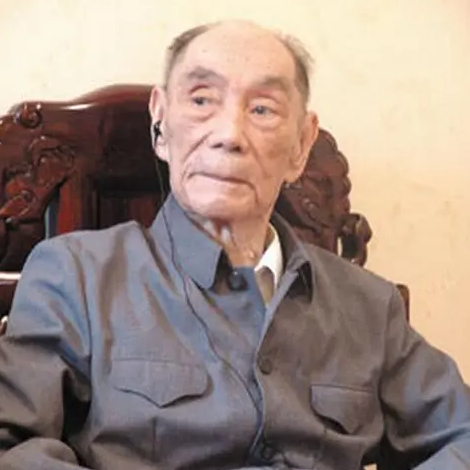Li Muliang

Li Muliang, courtesy name Meng'e, is a Peking Opera pianist. Joined the Communist Party of China in 1961. An old student who learned Peking Opera at a young age. After 1937, he studied with a teacher. After 1940, he played the piano for Ma Lianliang for a long time. After the founding of the People's Republic of China, he served as the pianist of the Beijing Peking Opera Troupe and the deputy director of the Beijing Peking Opera Art Committee. He has designed vocals for plays such as "Hai Rui Dismissed", "The Orphan of Zhao's", "Battle of Chibi" and "Shajiabang". Li Muliang, who was once the best violinist of Peking Opera performing artist Ma Lianliang, was known as the "Li School" because of his ingenious and self-contained violin style.
In his life, Li Muliang, the "Master of Beijing and Hu", has a total of three famous qin through wind and rain, which accompanied him in his artistic life for nearly a century. One of them is the Ziluohan Danzi Xipi Huqin, which was donated by the well-known piano ticket Le Pu Sun. According to Li Zuming, the son of Li Muliang who inherited his father's business, listening to Ma Lianliang's "Lost in the Sky" and "Huaihe Camp", as well as the accompaniment of Xipi's singing in "Four Jinshi" and Xipi's "Little Door", you can taste this qin features. In addition, Li Muliang also has a special Erhuang qin made by Master Hong Guangyuan. The sound of this qin is broad, sweet and mellow. It is said that Mr. Yang Baozhong wanted to exchange a refined qin case for this qin, but in the end he failed to do so. In the 1930s, the one who followed Li Muliang to the north and the south was the qin handed down to him by Li Muliang's father. Li Muliang used this qin to accompany Yan Jupeng, a famous Peking Opera artist.
Li Muliang loved reading, calligraphy, and painting. The family still keeps a folding fan. On one side of the fan is a painting by Zhang Daqian, and on the other side is an inscription by Zhang Shizhao. Li Muliang and Zhang Daqian, a master of traditional Chinese painting, are close friends. In addition to admiring each other in art, the two also share a common love for food.
1936: Li Muliang followed Yan Jupeng to play the piano as a guest. The nineteen-year-old Li Muliang followed Yan Jupeng to play the piano.
1938: Baogui Club changed Danjiao and Qin teacher. The role of Baogui Society was changed to Shen Manhua. Because of Zhang Boju, the violinist Wang Ruizhi left Jupeng to speak for Yu Shuyan. At that time, Li Muliang had already worshipped Xu Lanyuan. With the consent of the Liyuan Association, Yan Jupeng formally hired Li Caoqin.
1938: Yan Jupeng recorded five records at the National Music Company. Yan Jupeng was invited by the National Music Company to record five albums, each of which includes "Second Entering the Palace", "Dingjun Mountain", "Catch and Release Road", "Empty City Plan" and "Touch the Monument". Li Muliang played the piano and Tan Changhai played the drum. This is the last film made by Yan Jupeng. June 3, 1959: Ma Lianliang accepted Liang Yiming as his apprentice, and the apprenticeship ceremony was held.
April 4, 1963: The symposium on the script transplant, adaptation, director and music issues of the musical "Capturing the Seal" was held.
June 30, 2009: The press conference of Li Muliang's works and the concert of classic Peking Opera arias was held.
Similar artist
Involving musical instruments
Involved portfolio
Involved news
Popular artists
- 01 Zhang Xiuyan
- 02 King Hammer
- 03 Chen Tao
- 04 Wang Yumeng (Ink Peanut Butter)
- 05 Deng Jiandong
 渝公网安备 50010702504639号
渝公网安备 50010702504639号